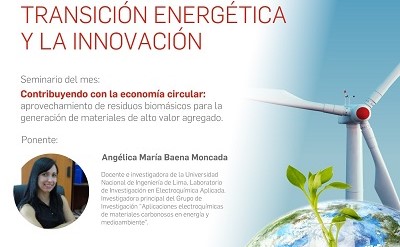- The action aims to highlight the work carried out by local, national and international women scientists and to publicize their contributions in this field
- The conferences will be held on a monthly basis and will allow sharing experiences developed in different countries
In the presentation of the conference, which has started the cycle, the director of the Chair, Elena Pastor stressed that "these seminars will be attended by local, national and international scientists who, in addition to contributing their experience in the field of ecological transition and emphasize the role of women in the coming changes, will present the work in progress carried out in other regions and, in particular, the challenges faced in other countries."
She explained that the conferences will be held on a monthly basis, planned to extend over the coming years, to become one of the hallmarks of this Fundación Cepsa Chair of the ULL.
In the opening conference of this cycle, Angélica Baena, professor and researcher at the National Engineering University of Lima (Peru), discussed the contribution of biomass waste to circular economy through the creation of high value-added materials.
In her speech, she presented the current lines of research in Peru, in order to promote energy transition. In this regard, she noted that the country has one of the largest lithium mines, a material for which numerous studies are being conducted. Moreover, she pointed out that the goal is to promote the use of electric vehicles, and for this purpose actions are being taken to improve recharging systems.
Angelica Baena reviewed the energy situation in her country, where, she explained, there are jungles and rural areas without energy, and stressed the University's commitment to finding alternatives to solve this problem, according to the Sustainable Development Goals. She pointed out that the areas of energy research being worked on are aimed at the circular economy and meeting the objectives of reducing, reusing and recycling.
Furthermore, she pointed out that one of the solutions to face the world energy crisis is focused on alternative energies, mainly solar and wind, and added that, given their intermittent nature, the lines of research are directed towards storage, so that they can be used at any time.
She explained that, to advance in this line, they rely on the generation, through the use of organic waste, of activated carbon, a material that, given its versatility, can be used both for energy storage systems and to create electrodes, catalyst supports or to develop sensors.
In this line, the researcher from the National Engineering University, revealed the results of the work carried out to obtain activated carbon from waste material such as pineapple leaves and purple corn cobs, and a similar experiment is being conducted with cocoa, coffee, oranges, bananas and even cotton T-shirts.
Upcoming lectures
The cycle of seminars "Researchers for Ecological Transition and Innovation" will continue at the end of October with a lecture by the rector of the University of La Laguna, Rosa Aguilar, on automated learning in the identification of systems, and a case study on the prediction of electricity generation in a wind farm.
In November, Erika Teliz, associate professor at the Institute of Chemical Engineering of the University of the Republic of Uruguay, is scheduled to participate, she will focus on research in the field of green hydrogen and electric mobility.
This year's program will end in December with a seminar on renewable projects and energy efficiency, given by Trinidad Espinosa, Head of Operations, Safety and Technical Services at Cepsa's Research Center.

